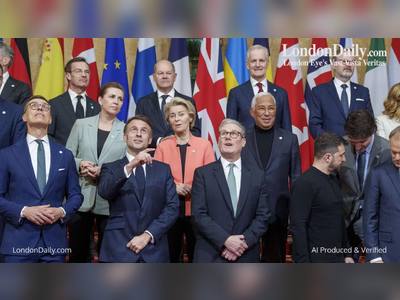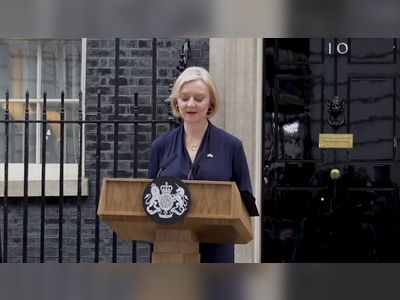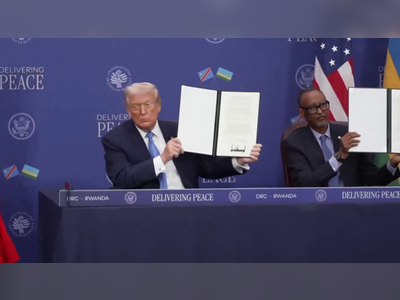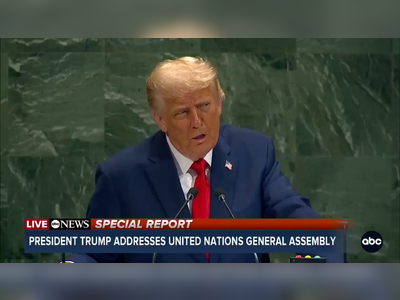UK Urges Poland to Choose Swedish Submarines in Multi-Billion € Defence Bid
Prime Minister Keir Starmer backs Sweden’s Saab in Poland’s ‘Orka’ submarine programme, with UK firm Babcock poised to join the bid
Prime Minister Keir Starmer has actively lobbied Poland to award its substantial submarine procurement contract to Sweden’s defence group Saab, a decision that may also involve the UK’s Babcock within the deal.
The contract sits at the heart of Poland’s Orka submarine programme, a multi-billion-euro effort to modernise its navy in the face of heightened tensions with Russia.
Starmer, in a joint letter with Swedish Prime Minister Ulf Kristersson submitted in late October, expressed confidence that the Swedish-UK-backed proposal would enhance Baltic Sea security while delivering industrial benefits.
The UK government declined direct comment, though a spokesperson emphasised that defence exports and warship deals are delivering “billions of pounds” to the UK economy and reinforcing NATO and European security.
Saab’s submarines, optimised for Baltic operational conditions, are among several shortlisted bids including offerings from Germany, Italy, France and South Korea.
Saab noted that its designs are adapted to the shallow and acoustically challenging waters of the Baltic, but referred any questions about UK political involvement to British authorities.
Polish officials have indicated a decision on the first phase of Orka could be made within weeks.
The programme envisages Poland acquiring three to four new conventional diesel-electric boats under formal contracts by year-end.
The choice is understood to hinge not just on technical capabilities, but also on industrial cooperation, financing terms and strategic alignment with Poland’s defence and shipbuilding industry.
For the UK, the potential involvement of Babcock underlines an effort to deepen defence industrial partnerships and secure lucrative export contracts.
Babcock already collaborates in Poland on a separate frigate programme and is positioning itself to extend into submarine sustainment and build activity.
The UK’s campaign reflects broader dynamics in Europe’s defence market: as NATO members harness elevated security spending, governmental lobbying, political letters and state-to-state endorsements are becoming central to high-value procurement programmes.
The eventual selection will not only shape Poland’s naval capability but also influence which industrial supply chains and allied nations deepen ties in a critical region for Western maritime defence.
With the voting window approaching, Poland’s defence ministry and industry observers will be closely watching how the competing bids are evaluated and which partner emerges to support Warsaw’s undersea ambitions over the next decade and beyond.
The contract sits at the heart of Poland’s Orka submarine programme, a multi-billion-euro effort to modernise its navy in the face of heightened tensions with Russia.
Starmer, in a joint letter with Swedish Prime Minister Ulf Kristersson submitted in late October, expressed confidence that the Swedish-UK-backed proposal would enhance Baltic Sea security while delivering industrial benefits.
The UK government declined direct comment, though a spokesperson emphasised that defence exports and warship deals are delivering “billions of pounds” to the UK economy and reinforcing NATO and European security.
Saab’s submarines, optimised for Baltic operational conditions, are among several shortlisted bids including offerings from Germany, Italy, France and South Korea.
Saab noted that its designs are adapted to the shallow and acoustically challenging waters of the Baltic, but referred any questions about UK political involvement to British authorities.
Polish officials have indicated a decision on the first phase of Orka could be made within weeks.
The programme envisages Poland acquiring three to four new conventional diesel-electric boats under formal contracts by year-end.
The choice is understood to hinge not just on technical capabilities, but also on industrial cooperation, financing terms and strategic alignment with Poland’s defence and shipbuilding industry.
For the UK, the potential involvement of Babcock underlines an effort to deepen defence industrial partnerships and secure lucrative export contracts.
Babcock already collaborates in Poland on a separate frigate programme and is positioning itself to extend into submarine sustainment and build activity.
The UK’s campaign reflects broader dynamics in Europe’s defence market: as NATO members harness elevated security spending, governmental lobbying, political letters and state-to-state endorsements are becoming central to high-value procurement programmes.
The eventual selection will not only shape Poland’s naval capability but also influence which industrial supply chains and allied nations deepen ties in a critical region for Western maritime defence.
With the voting window approaching, Poland’s defence ministry and industry observers will be closely watching how the competing bids are evaluated and which partner emerges to support Warsaw’s undersea ambitions over the next decade and beyond.









